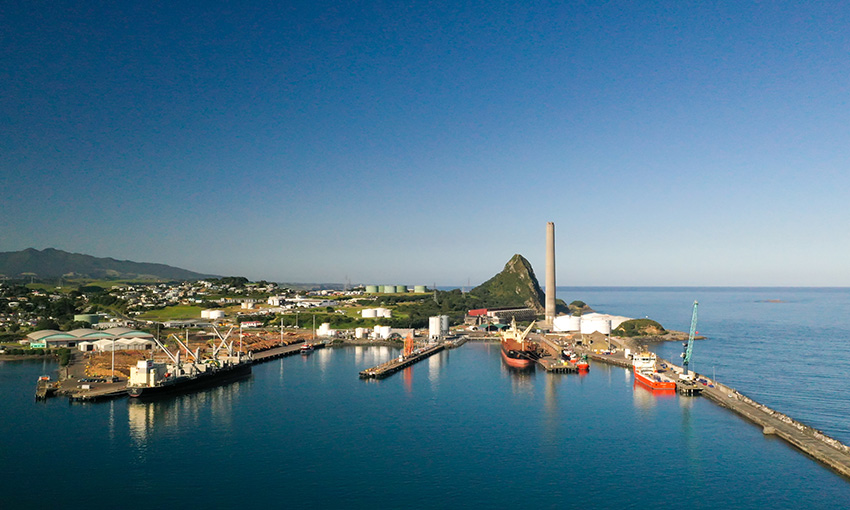AN INLAND port on New Zealand’s North Island recently welcomed its first two freight trains from the ports of Tauranga and Auckland.
The NZ$60 million Ruakura Inland Port is a customs-controlled cargo facility on the eastern boundary of the city of Hamilton.
The two Kiwi Rail trains were the first ever at the inland port, launching an initial schedule of two trains per week, each with capacity for around 90 containers (according to the Port of Tauranga).
Once the inland port undergoes final commissioning in August, freight train schedules will be adjusted to match demand.
Ruakura Inland Port has been under development for more than 15 years. Tainui Group Holdings is developing the facility, and the Port of Tauranga will operate it as a joint venture for an initial period of 50 years.
Senior management representing the joint venture were present for the arrival of the first train from Tauranga on Thursday morning (3 August).
Port of Tauranga chief executive Leonard Sampson said partnering with Tainui Group Holdings to operate the inland port would better connect the port’s existing facilities.
“By combining Port of Tauranga’s expertise in developing and operating ports with the deep regional connections of TGH, and the scale and efficiency of the Ruakura location, we can deliver more value for our regions and customers,” he said.
Tainui Group Holdings chief executive Chris Joblin said the arrival of the first to trains was a big step toward reducing carbon emissions from the North Island supply chain.
“It gives importers and exporters the option to move away from the previously ubiquitous round-trip, road-based journeys, towards more rail-based one-way movements for cargoes,” he said.
Recent modelling commissioned by the joint venture suggested potential cost savings of up to 30% for cargo owners using rail from Ruakura Inland Port.
KiwiRail operates more than 85 train services per week between MetroPort Auckland and Tauranga which pass through Ruakura.
Kiwi Rail CEO Peter Reidy said the milestone marks expansion and better utilisation of the national rail network.
We believe that rail offers resilience against supply chain disruptions, and it is good to see increasing interest and use,” he said.
“Importantly, this project shows an increased connectivity of our infrastructure to benefit cargo-owners and consumers across the country to help decarbonise land transport in New Zealand.”
Other businesses at the adjacent Ruakura Superhub are expected to open this year, including new cold storage facilities operated by Maersk and NZ freight forwarder Big Chill.





